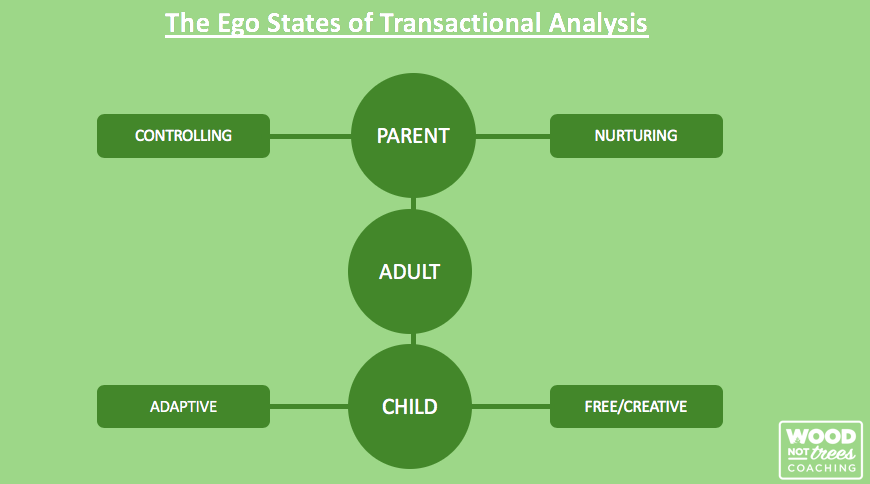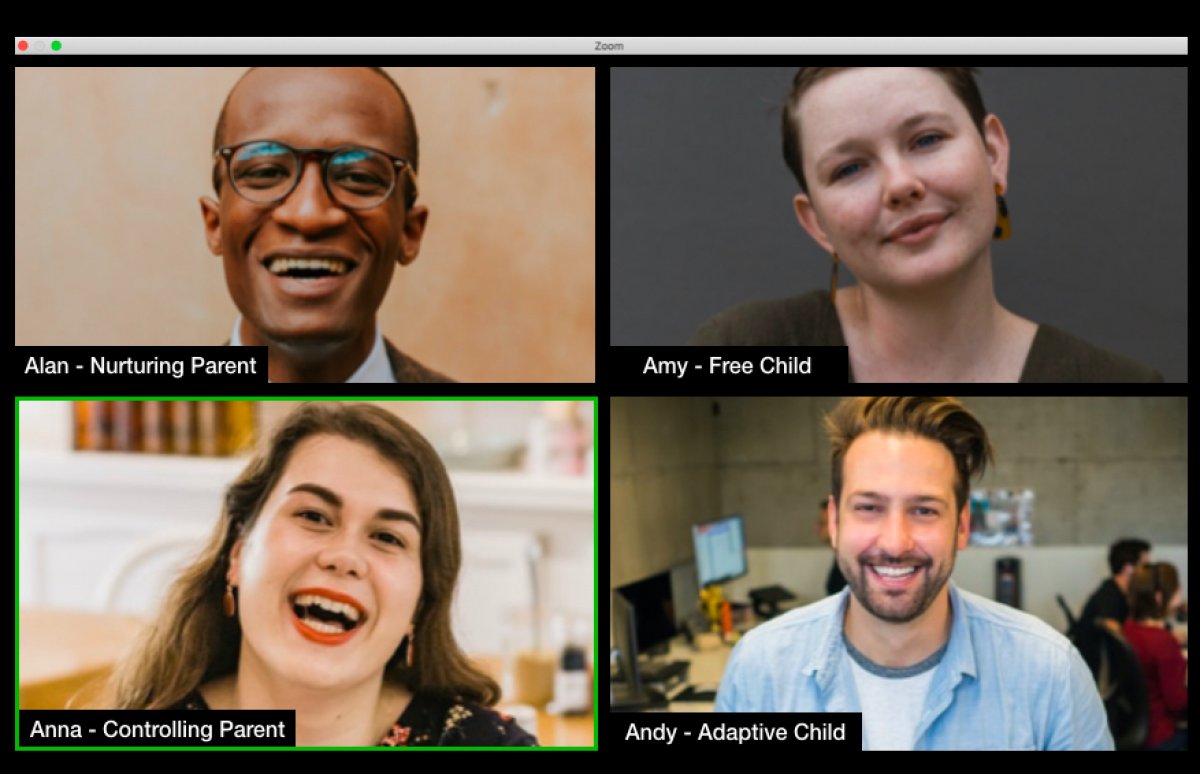Welcome to a rather fractious virtual meeting at We’ve All Been There Limited.*
There’s a disagreement about the IT upgrade.
Anna’s pushed for time. She needs to get this over the line, and is now telling her colleagues what’s important and how they should be thinking about this vital project.
Amy’s just tabled her brilliant idea, but nobody bought into it. So, she’s come over all sulky and sullen.
Alan’s enjoying watching Anna hold court. He always knew she’d be a great addition to the team.
Andy bears the scars of the last time he tried standing up to Anna. He’s taking the path of least resistance, while suspecting that Anna hasn’t taken into account an important security issue.
On the face of it, there are four adults contributing to this fairly typical scenario.
But if we use the psychological school of transactional analysis to take a look at the mindsets at play, we can see that all the adults have vacated the meeting room – at least momentarily.
Anna has become a Controlling Parent. She’s convinced she knows what’s right and expects others to fall in to line. Alan in also a Parent, albeit a Nurturing Parent, as he lends his support to Anna based on his ongoing admiration of her work.
The two Parents are met by two Child ego states. Amy is in Free Child mode. She had her moment of inspiration but now she’s withdrawing because her contribution was ignored. Once bitten, twice shy, Andy is doing what he’s told. He’s being an Adaptive Child.

Chances are, Anna will get her way, and at the next meeting they will all be discussing the ongoing problems with the IT upgrade. All apart from Amy, who will be either late or absent.
What’s missing from the room, and would help bring forward a more successful outcome, is the Adult mindset. The one that allows us to act rationally and sensitively, to drive towards the best solution in a way that carries people with us.
Transactional analysis tells us that these mindsets are not fixed. We can switch between them at a moment’s notice and not even know that we’re doing it. All the more so in these troubled times, when we’re all experiencing new emotional pressures. Or, it could be that we’re stuck in a habit of always playing out the same role with particular people.
Awareness is key and helps us to adopt the mindset that is most appropriate to the situation. Adult isn’t always the most helpful one. If your project is behind time, you might well need a little Controlling Adult to move you forward. In a creative session, Free Child can take you a long way.
But very often, Adult is the best way to bring out everyone’s A-game. It can also help us out of a tricky situation.
Back to the meeting at We’ve All Been There.
Perhaps Alan will step in to Adult, and help Anna get there too, by putting his admiration to one side and wondering, aloud, if there’s anything they might be missing. Or gently suggesting that there might be priorities other than timelines. Andy might respond to the opening and put aside his fear of upsetting Anna by making a contribution that is necessary for the good of the project. He might help Amy back into the meeting by picking up on her earlier comments, and Amy, feeling heard, might be encouraged to share her next idea. The revised idea, the one that can be done within the timeframe and that might just get the project back on track.
*We’ve All Been There Limited and Anna, Andy, Alan and Amy are, of course, fictitious. But you knew that already.


